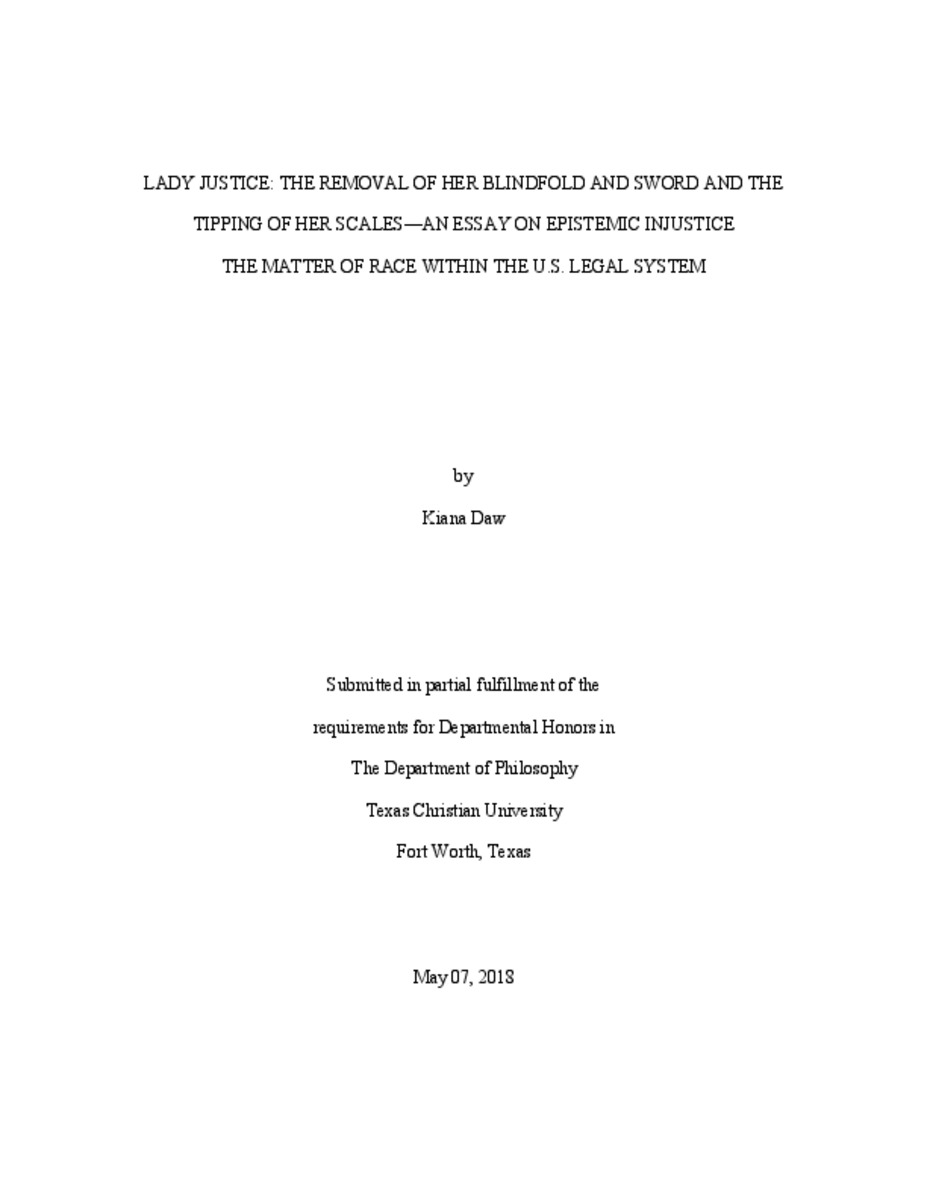Lady Justice: The Removal Of Her Blindfold And Sword And The Tipping Of Her Scales- An Essay On Epistemic Injustice The Matter Of Race Within The U.S. Legal SystemShow full item record
| Title | Lady Justice: The Removal Of Her Blindfold And Sword And The Tipping Of Her Scales- An Essay On Epistemic Injustice The Matter Of Race Within The U.S. Legal System |
|---|---|
| Author | Daw, Kiana |
| Date | 2018 |
| Abstract | Some of the greatest dangers that we face as a society arise from acts that we do not label as crimes. Philosopher, John Stuart Mill asserts that "the only purpose for which power can be rightfully exercised over any member of a civilized community, against his will, is to prevent harm to others." If Mill is right, then the point of the criminal justice system is to protect us from harm. However, our legal system tends to focus on one specific type of harm such as criminal acts committed by the poor, and forgoes others. With this said, there are acts that lead to certain noncriminal harms that share many elements of criminal conduct-- they are harmful acts done knowingly and recklessly; however, they are most often ignored by the criminal justice system. Our society fails to criminalize a great deal of harmful behavior-- this demands explanation. Jeffrey Reiman and Paul Leighton present an argument in their book, The Rich Get Richer and the Poor Get Prison, that contrary to what society is led to believe regarding our criminal justice system, that the actual goal of the system is not one to eliminate crime or to achieve justice, but to "project to the American public a credible image of the threat of crime as a threat from the poor" (Reiman, 1). In my opinion, Leighton and Reiman are correct in their assertion that economic bias plays a role within our criminal justice system; however, I argue that it is not economic bias alone. Racial bias plays an integral role and is grossly underplayed within their argument; economic bias cannot be used as a proxy for race. I will focus on the matter of race within the U.S. legal system, and argue that many of the epistemic injustices found within the system as a result, are purposeful in nature as to continue perpetuating oppression of certain vulnerable populations-- more specifically, people of color. |
| Link | https://repository.tcu.edu/handle/116099117/22412 |
| Department | Philosophy |
| Advisor | Harris, John |
| Additional Date(s) | 2018-05-19 |
| NOTE: | Full text permanently unavailable by request of author. Contact author for access. |
Files in this item
This item appears in the following Collection(s)
- Undergraduate Honors Papers [1463]
© TCU Library 2015 | Contact Special Collections |
HTML Sitemap



